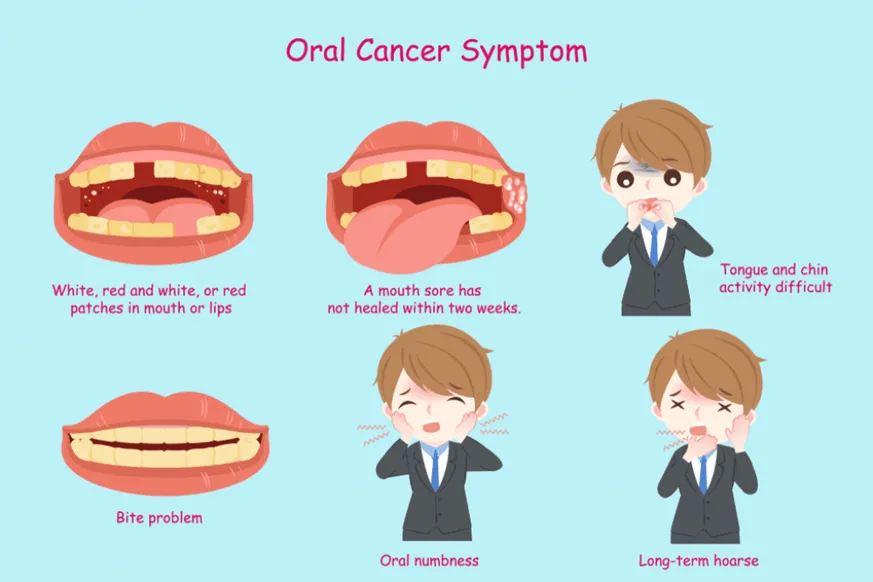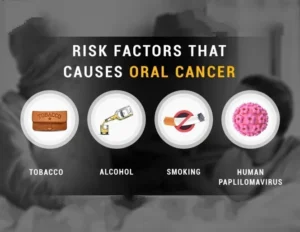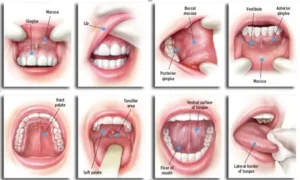Oral Cancer Treatment in Bangalore
Oral cancer, also known as mouth cancer, belongs to the head and neck cancers group. It can occur on the tongue, lips, the floor of the mouth, cheeks and hard palate. If not detected and treated early, it can be fatal.
Oral cancer is the sixth most prevalent cancer globally but one of the most common cancers in India. It accounts for 30% of all cancers. About 1,36,000 new cases are reported annually in India, and around 57000 deaths due to oral cancer.
If diagnosed early, doctors can treat oral cancer effectively, but sadly most of the time, it is discovered when it is in the advanced stage. The key to surviving oral cancer is early detection.
For oral cancer treatment, Dr. Sandeep Nayak, Chairman, Oncology Services, Karnataka (India) is one of the most sought-after oncologists in Bangalore, India. He has more than fifteen years of extensive knowledge and hands-on experience in treating a high volume of patients with various types of cancers.
He is recognized as one of the best oncologist in India for his accurate diagnoses and innovative surgical approach that gives his patients a fighting chance at survival.
Read on to know the symptoms, risks, and options for oral cancer treatment in Bangalore
What are the symptoms of oral cancer?

The symptoms of oral cancer are:
- A reddish or white patch inside your mouth
- A growth or mass in your mouth
- A sore inside your mouth or lips that won’t heal
- Loose teeth along with a wound
- Difficulty or discomfort in swallowing, speaking, chewing, or moving the tongue
- Bleeding from the mouth
- Feeling that there is something stuck in the back of the throat
- Numbness in the face, chin, neck, lower lip
What are the risk factors for oral cancer?
The use of tobacco is one of the main risk factors for oral cancer. It could be in any form, chewing tobacco, cigarettes, beedis, cigars, hookahs, e-cigarettes, paan, gutkha, pan masala, etc.
Other risk factors are:
- Poor oral hygiene
- Previously diagnosed with oral cancer
- Heavy consumption of alcohol
- Sharp tooth
- Human papillomavirus infection
- Excessive facial sun exposure
The risk increases even more if you frequently consume a substantial amount of tobacco and alcohol. They together contribute to about 70% of oral cancer cases. According to the Global Adult Tobacco Survey India, 35% of adults in our country consume tobacco in some way or other.
How is oral cancer diagnosed?
You should consult your dentist or doctor if you experience persistent signs or symptoms for more than two weeks. They will check your mouth for lumps, sores, discolored tissues, irregular tissue growth, or lesions. If they find anything suspicious, they will perform a brush or tissue biopsy to check for cancerous cells. In case the diagnosis is confirmed, they will refer you to a surgical oncologist.
Dr. Sandeep Nayak is one of the best oncologist in Bangalore for oral cancer. During the consultation, he may perform a physical examination and ask you to undergo additional tests such as:
- X-rays: To check if cancer has spread to the jaws, lungs, or chest.
- Pet scan: To verify if the cancer cells have reached the lymph nodes or other organs.
- CT scan: It helps detect tumors elsewhere in the body.
- MRI: It captures accurate images of the head and neck region to help determine the stage of cancer.
- Endoscopy: A thin, flexible tube with a camera and light is passed through your throat to check for signs of cancer in your windpipe, inner throat, nasal passage, and trachea.
Stages of oral cancer are marked by the Roman numerals I to IV. Stage 1 indicates small cancer localized in one region, whereas stage IV signifies a more aggressive cancer that has spread to other body parts.
What are the options for oral cancer treatment in Bangalore, India?
Dr. Sandeep Nayak will plan your treatment based on the stage of your cancer, its type, location, overall health, and preference. The treatment may include surgery, radiation, and chemotherapy.
1. Surgery – Surgery is usually the first line of treatment to remove the tumor. Depending on the tumor size, Dr. Sandeep Nayak, will discuss with you the optimum procedure for you. For small sized cancer, the surgery would involve removal of the tumor along with healthy margin around it.
The surgeon can use robotic neck dissection or MIND technique to make the surgery less painful with quick recovery for the removal of neck lymphnodes. When the cancer is large, the surgeon will use extensive surgery to remove a large tumor, which may involve removing a part of your tongue or jawbone along with cancer. If cancer cells have reached the lymph nodes in the neck, the surgeon will surgically remove the lymph nodes and the surrounding tissues from the neck.
After the procedure to remove oral cancer, your surgeon may ask you to undergo reconstructive surgery to rebuild your mouth if necessary. Bone, skin, and muscle grafts will be used from other parts of your body to reconstruct your mouth. These are called flap which can be microvascular or free flaps or pedicled flaps.
Dr. Sandeep Nayak, an ace surgical oncologist in India, specializes in endoscopic, laparoscopic, and robotic surgery. He is an expert in TORS (transoral robotic surgery), a safe procedure for hard-to-reach cancers at the back of the throat, tonsil, or base of the tongue.
2. Radiation therapy – Radiation therapy involves using high-concentration energy beams to destroy cancer cells or prevent cancer cells from growing. Radiation can either be given from a machine outside your body or internally by using radioactive wires or seeds kept near your cancer.
3. Chemotherapy – Chemotherapy uses drugs to eliminate cancer cells. It is given to you orally, through an injection, or intravenously. It is often combined with radiation therapy to increase the effectiveness of the treatment.
4. Targeted therapy – Targeted therapy is an advanced treatment option for oral cancer treatment in Bangalore if other treatments are not working. This treatment alters specific proteins on cancer cells to interfere with their growth. Your oncologist can use it for early or advanced cancer.
5.Immunotherapy- Immunotherapy is usually reserved for advanced oral cancer that has failed to respond to standard treatments. This therapy uses your immune system to attack cancer cells and eliminate them.
FREQUENTLY ASKED QUESTIONS
How to detect oral cancer early?
You must conduct a self-exam of your mouth at least once a month. You should look out for any sore, lump, or lesion in your mouth by thoroughly checking your gums, tongue, cheeks, and the roof and floor of your mouth. Also, feel for lumps in your neck and lower jaws. If you find any symptoms mentioned above, consult your dentist immediately.
Further, it would help if you went to your dentist for oral cancer screening annually. It will help detect cancer in an early stage where it is easily treatable.
What is the survival rate of oral cancer?
The 5-year survival rate for:
- Localizedoral cancer is 84%
- Cancer that has spread to nearby lymph nodes is 65%
- Cancer that has spread to other organs is 38%


